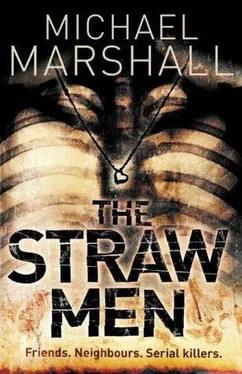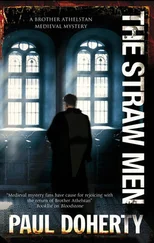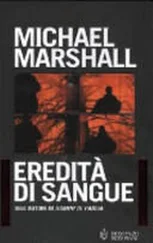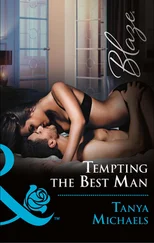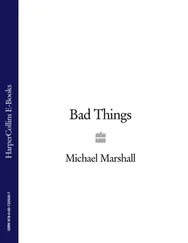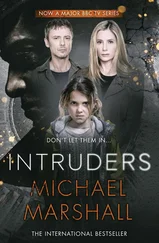Davids came back in with a cloth that Bobby took and wrapped around his arm. Then Davids sat down in one of the armchairs and looked at the floor. He looked tired and pale, and much older than when I'd seen him before. One of the lamps was just to one side of the chair, etching lines into his forehead and accentuating the planes of his face.
'You're going to have to tell me what's happened, Ward. And I can't guarantee I can do much to help. My field is contracts, not … gunfire.'
He pushed his hands through his hair and looked up at me, and that's when a small pale light went on in the back of my head.
I turned, looked at the top of the piano, and then back at Davids.
'You're staring, Ward.'
I opened my mouth to say something, but found nothing there. I closed it again.
'What is it? What have you done?'
His choice of words, which I'm sure was accidental, somehow convinced me. The way they rhymed with 'have become.'
Finally I managed to speak.
'When did you meet my folks, exactly?'
'1995,' he said, promptly. 'The year they arrived.'
'Not before that?'
'No. How could I have done?'
'Maybe run into them at some stage. Somehow. People's paths cross in mysterious ways. Almost like there's something going on that even they don't know about.'
He looked down, back at the floor. 'You're being odd, Ward.'
'How long have you lived in Dyersburg?'
'All my life, as I believe you know.'
'So the name Lazy Ed wouldn't mean anything to you?'
'No.' He didn't look up, but there was no hesitation, no off note in his voice. 'Strange name, if you ask me.'
Bobby was staring at me now.
'Terrible thing,' I said. 'I never even knew his surname. Just knew him as Lazy. Not a great epitaph, but I suppose it doesn't really matter now he's dead.'
'I'm sorry to hear that a friend of yours is dead, Ward, but I really don't understand what you're driving at.'
I took the picture off the piano. It wasn't a group shot. There were only a couple of those, and they were black-and-white, fading mementos of people long dead, frozen stiff in front of a technology they didn't really trust. The one I held was an informal single portrait in colour, taken by some friend long ago, with that washed out and pastel look where the reds retain their fire and the blues stay rich but everything else seemed locked back in a different time, as if the light that reflected off those surfaces was fading, no longer strong enough to reach the present day; as if that era itself was being unmade as fewer and fewer people survived who could remember the feeling of its sun on their face. A young man, in a forest.
'Play the Sodomy one,' I said, looking at a Harold from long ago. 'Put it on Don, big Don man the Don, put it on, Don, put it on.'
'Stop it, Ward.' This time there was a faint quaver in his voice.
Bobby took the photo from me.
'This picture must be from a few years earlier,' I said. 'Harold's younger and thinner than in the video. Hadn't grown his hair yet.'
I turned to Davids. 'You must have been, what — five, six years older than them and Ed, about the same age as Mary. And now you're the only one left. And that's why you didn't answer the door when we rang, and you're not picking up the phone tonight.'
Davids was staring at me. He looked about a hundred years old, and very frightened.
'Oh fuck,' he said, the words coming out as one shuddering breath.
I wanted to grab him, shake him until he talked, until he made me understand what had been going on, until he gave me some means of comprehending my life. But just as he'd shed eighty pounds in the last thirty years, in twenty seconds his face had lost everything I'd previously seen in him, the look you get through a lifetime of telling people where they stand in the eyes of written law. He looked thin, and frail, and even more afraid than I was.
'Tell me,' was all I said.
In the end it was fast and didn't take long.
He told me that a long time ago, there had been five people who were friends.
32
Harold and Mary and Ed were born in Hunter's Rock, and grew up together. They'd lived small-town lives and there are worse things than that. Then they happened to meet two young newcomers in a bar and afterwards the five were always hanging around together.
My parents were already married, but soon found they could not have children. Gradually they realized this wasn't the end of the world. They had each other, enjoyed life as friends and lovers. There were many things to do and find: the years would not pass slowly, nor would they never be happy, just because when they closed the door at night it would only ever be the two of them in their cave. They got on with their lives, tried to accept the cards they'd been dealt. A couple of years passed in work and sleep and Friday nights, long games of pool that nobody lost.
Then the world tilted, and they came to realize that passing on genetic material isn't the only way of making your mark on the universe. Suddenly came an era that I suppose I've never really understood. In a flat cultural plain, mountains and gullies appeared, splitting the ground on which people stood. Demonstrations in the streets. Sit-ins on campus, students and faculty pulling together for the first time. Fights in restaurants that wouldn't allow blacks to eat at the same lunch counter. Police firing on citizens, children turning on their parents. Marches. Shouts of nigger-lover, fascist, queer, commie. Ideas hammered into weapons. Long evenings in people's houses getting stoned, talking about what should be done, talking about new ways of being, talking about talking about talking.
They were older than most activists. They had the time and energy to spare — and more perspective than either the teenagers or the angrily oppressed. Beth Hopkins got involved in the unionization of black domestic workers. Harold gave free legal advice to those who couldn't afford it, or to those whose race had always meant they caught the sharp end of the legislative stick. Don Hopkins set up a campaign to prevent whole neighbourhoods being demolished to make way for the beltways that were the first steps toward the post-modern American city, where the undesirables are fenced out of the centre by six-lane rivers of hurtling steel, and inequality is enshrined in the landscape. Mary and Ed were merely followers, but they helped out wherever they could, and whenever Ed was sober. Mary loved Harold, and Ed just wanted some people to hang around. They held down their jobs and worked in their spare time, these older warriors, people who by this stage were over that dread age of thirty and thus able to temper enthusiasm with a sense of what was important: to concentrate on activities that might actually help people, rather than just yield a warm glow inside and the chance to screw some other excitable young thing flushed with the adrenaline of protest.
For two years they waved banners and fists, gave their time and money and heart. A few things changed. Most did not. The status quo has stamina. Loud guitar and free love can only change so much. Gradually the flavour of the times soured, as the same old forces simmered together for another year. It was Harold who first noticed what was going on. He realized that the people coming to him for legal advice, veterans of hot afternoons spent bellowing at the cops, were in worse and worse shape when they showed up at his door. That peaceful resistance was generating more wounds as the months went by, and that the bruises and scars he was seeing were not all the responsibility of the police. That there were factions within the beautiful people, and that these divisions were growing more telling and violent than those between them and the authorities. That there were groups whose aims seemed much more simple and retrograde than progress, whose agenda held no action points, only darkness.
Читать дальше
